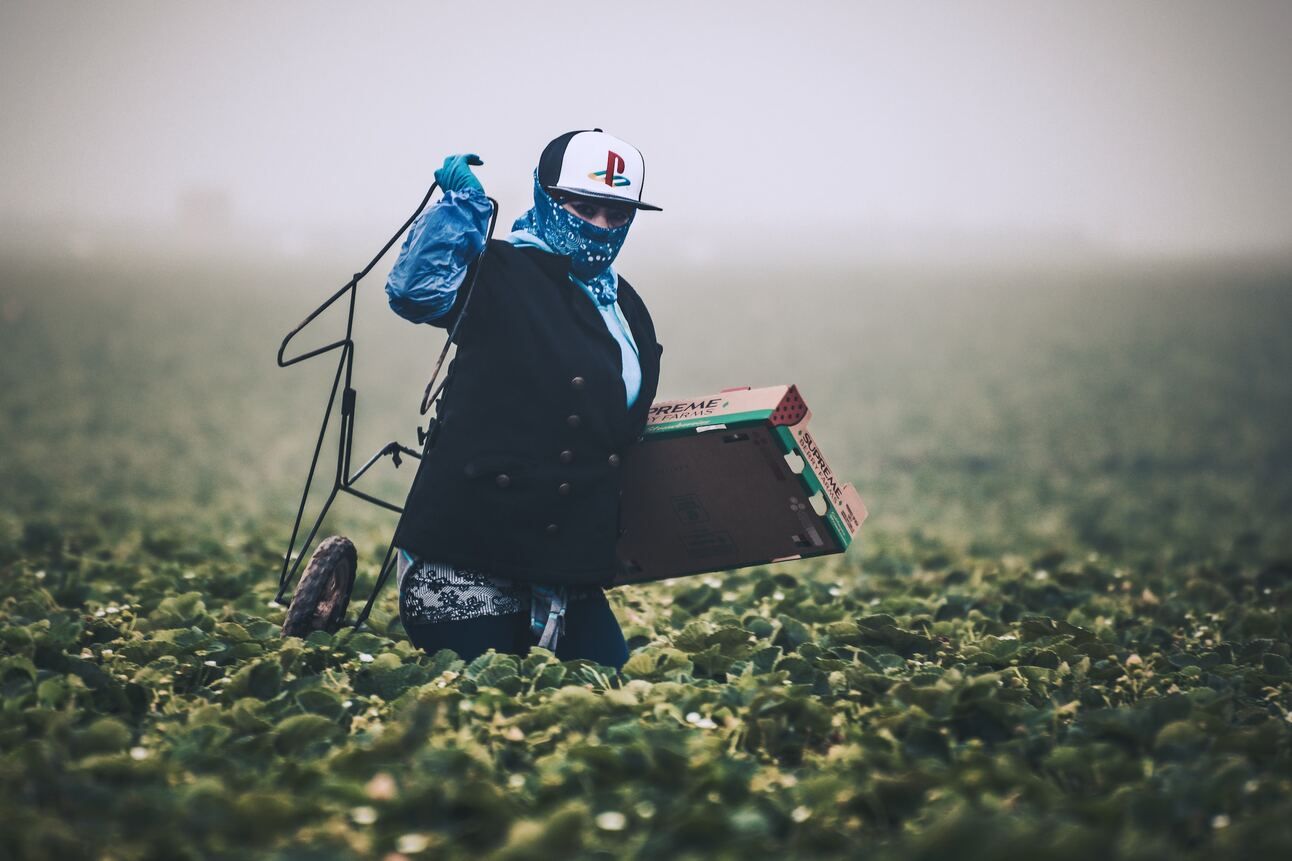

Unsplash
I’m Quinn Emmett, and this is science for people who give a shit.
Every week, I help 15,000+ humans understand and unfuck the rapidly changing world around us. It feels great, and we’d love for you to join us.
Welcome back.
BIG NEWS: We want to hear from you!
Complete our survey by clicking the button below and let us know what’s working and where we can improve.
Everyone who completes the survey will be entered to win one of (5) $100 Patagonia gift cards 🤝
This week: How can we better protect farmworkers?
Plus, the news:
A free online summit for eco-anxiety from RITA
A new era for Alzheimer’s treatments
Inflated prices of packaged food
Saving lives with better weather forecasting
Did you know we record an audio version of all of our essays? Subscribe to our podcast feed and listen to this essay now 👇

Last week’s most popular Action Step was investing in tech companies that support global decarbonization.
Donate to the Food Chain Workers Alliance, a coalition dedicated to improving working conditions for workers in every stage of food production, and to the Native CDFI Network to improve access to capital and credit for Indigenous farm workers.
Volunteer to build a climate resilience hub so your community can better respond to extreme heat events and other disasters.
Get educated about how to protect yourself and your community from heat and other extreme weather.
Be heard about building heat-resilient communities and share the Heat Action Platform tool and U.S. Climate Resilience Toolkit with your city officials.
Together With Morning Brew
Get smarter in 5 minutes with Morning Brew (it's free)
There's a reason over 4 million people start their day with Morning Brew - the daily email that delivers the latest news from Wall Street to Silicon Valley.
Business news doesn't have to be boring...make your mornings more enjoyable, for free.
Want an ad-free experience? Become a Member.

Farm To Table
If there is a TLDR; to this rant it’s this:
America has a well-documented history of relying on disposable farmworkers. And as climate change makes that job becomes ever-more dangerous (which is really saying something!), landowners, elected officials, and corporate powers remain disinclined to protect, much less support, the hands that literally feed them.
So we’re going to have to make them do it.
Look: After the hottest June in recorded history, July isn’t faring much better. So many regions are cooking, and it’s important to remember how interconnected our climate and weather systems are. Carbon emissions don’t respect borders.
Florida’s melting? It started in Africa, and it started in Africa because of emissions produced here, and in China, and Europe.
El Niño is here, finally, and while there’s lots of talk (online at least) about how devastatingly hot the oceans are — something we’re stupidly, usually prone to ignoring, because most of us do not live in the oceans — I’m here today to vent specifically about the inexcusable broad lack of protections for farmworkers on land, why it matters to all of us, and what the hell we can do about it.
Per a whole shitload of research, farmworkers in the US are something like 35x more likely to die of heat than other workers.
Your gut response might be, “Yes, but isn’t that obvious, they’re outside exposed to the elements, and also pesticides?” and I’d say “Exactly.”
Odds are you’re working from home, so take a look around your kitchen.
Put your hands on some cherries, grapes, strawberries, oranges, or peaches.
Pick one up.
Where did it come from?
Who picked it?
What sort of conditions — from heat to pesticides — were the crop and crop picker exposed to?
And what happens if that person suffers, or even dies because of those conditions? Would you notice?
What if I told you these essential workers didn’t have to die — or even come close to it — but that generations of bad guys have proven they don’t care if they do?

